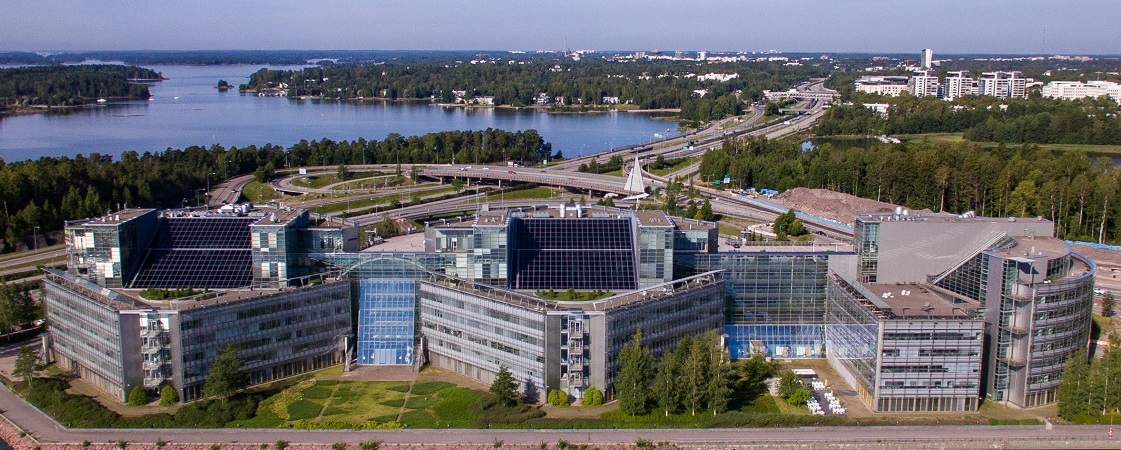Industry Forum on Industrial Applications of Artificial Intelligence
IEEE INDIN’19 will host three Industry Forum sessions during the conference, addressing the Industrial Applications of Artificial Intelligence. Industry Forum is an IES program for Industry to engage with research in a productive manner. Industry speakers are invited to discuss industry, technology directions, and, most importantly, challenges for the companies. These presentations inform the attendees on the vision and application of technologies in business and what challenges companies are encountering. Another aspect of this forum is that it offers the opportunity for researchers to study the particular challenge and know the contact in the companies should they have a solution that the company might utilize. We want all conference attendees to engage in the Industry Forum and listen to the presentations of our industry speakers so all communities can benefit.
Session 1 - Artificial Intelligence in manufacturing and supply chain
This Industry Forum session addresses the key opportunities and challenges related to applying artificial intelligence in manufacturing and supply chain. The session will provide the participants with a state-of-the-art view to how industry is applying artificial intelligence to create new business models, improve manufacturing performance and enhance supply chain predictability, transparency and efficiency.
In this session, the speakers are encouraged to submit presentations tackling with AI within manufacturing and supply chain.
Speakers |
|---|
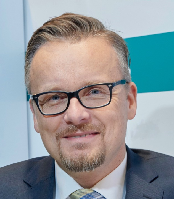
Michael Kübel
EMEA Regional Vice President Field Service Lightning, Salesforce, Europe
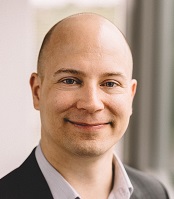
Petri Roine
Senior Advisor, SAS Institute, Finland
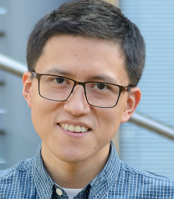
Gerardo Santillán
Senior Specialist, Semantum Oy, Mexico
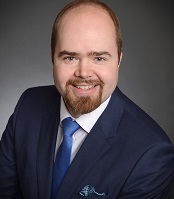
Karno Tenovuo
CEO, AWAKE.AI, Finland
Talk details |
|---|
Presenter: Michael Kübel
Title: Stories from the Field: how AI and Connectivity are changing the game of Fieldservice
Abstract: Across industries we see an enormous shift in focus and relevance of the mobile workforce: from primarily skill and cost perspective to Customer experience oriented; from re-active to pro-active and predicitve; from internal to networks; from ressources to markets and Uber-ization. Connectivity and AI are massive gamechangers on that transformation journey. We will discuss what could be the future blueprint of Fieldservice and look into best practices.
Bio of the speaker: Michael has a background of both Economics and Technical Engineering. Most of his professional life he build, turned around and managed Customer Service and Fieldservice operations. He was global VP of Service at domestic Heating Market Leader Vaillant Group before joining Salesforce in 2018 where he is now responsible for EMEA market development of their Fieldservice Product.
Presenter: Petri Roine
Title: Modern analytics solutions in manufacturing industry - This is how it is done in practice
Abstract: There’s a long road to go from having modern algorithms running on your own office computer to a fully scaled intelligent solution being thoroughly embedded in manufacturing site’s daily operations and processes. In this presentation I will introduce SAS’ approach to implementing modern analytical solutions. I will showcase the approach via manufacturing industry example where output of the plant increased by over 30% within just one month after implementation.
Bio of the speaker: Petri Roine is a Senior Advisor at SAS Institute and has helped organizations in over 40 countries to transform data into intelligence. After receiving his MSc degree in Automation and Systems Technology from Aalto University, he has worked in R&D organizations building intelligent computer vision and manufacturing systems. He has experience leading digital transformation projects and in his current role he focuses on helping Nordic Telco and Manufacturing organizations shaping and implementing analytical solutions to tackle problems with significant value.
Presenter: Gerardo Santillán
Title: Efficient development of Digital Twins based on simulation for operation support of Process Plants
Abstract: Digital Twins are the cornerstone of industrial digitalization. In the process industry domain, Digital Twins are a holistic application where up to date plant structure and process dynamics information are persistently available, enabling several powerful applications. Efficient implementation is critical to achieve wider industrial adoption of these systems. In this session, different development methods targeted to reduce engineering effort for implementing Digital Twins will be presented. Example implementations include industrial cases as well as proof of concept systems.
Bio of the speaker: Gerardo Santillán is a Senior Specialist at Semantum, a software development company specialized on engineering automation and on implementation of simulation-based Digital Twins for process plants. Gerardo has over four years of experience on the application of simulation over the process plant lifecycle.
Presenter: Karno Tenovuo
Title: Smart shipping & ports open data platform and ecosystem
Abstract: Awake.AI is a collaborative and open data platform company that facilitates ecosystem creation for smart ports and evolving autonomous shipping. Presentation focuses on AI applications for future smart shipping and smart ports.
Bio of the speaker: Karno Tenovuo created autonomous shipping business for Rolls-Royce. He holds a double master’s in automation engineering and international business. Background as entrepreneur and founder, SVP and P&L owner of intelligent marine solutions business. Now building the next wave of disruption in shipping.
Session 2 - Artificial Intelligence for autonomous systems
As an emerging trend, industrial systems are transforming from automated to autonomous. The systems that, without manual intervention, can change their behavior in response to unanticipated events during operation are called “autonomous”. In the recent years, we have seen many explorations in both academia and industries on such systems, ranging from driverless cars, unmanned aviation vehicles (UAV), automated guided vehicles (AGV), autonomous robots, autonomous ships, unmanned mining equipment, unmanned warehouses and distribution centers, unmanned groceries and shops, unmanned hotels and restaurants, and even autonomous power grids. Compared with traditional automatic control, the AI or machine learning techniques will play essential roles in such systems to enable the autonomous execution of complex tasks in more dynamic and unstructured environments with unpredictable changes.
In this session, the invited speakers will address state-of-the-art, research challenges, and business cases of the autonomous industrial systems.
Speakers |
|---|
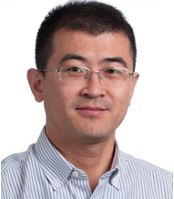
Dr. Zhibo Pang
Principal Scientist, ABB Corporate Research, Sweden
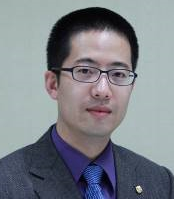
Lei Shan
General Manager, R&D Center, ZPMC (Zhenhua Port Machinery Company) Smart Solution Group, China
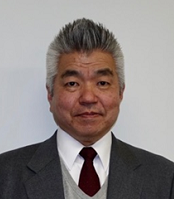
Sumitaka (Sam) Matsumoto
JCLSP, (Japan)
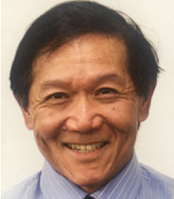
Paul Long
FrogBeam Inc. (USA)
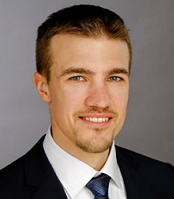
Dr. Nicholas Lehment
Systems Architect Industrial Competency Center, NXP Semiconductors, Germany
Talk details |
|---|
Presenter: Dr. Zhibo Pang
Title: Industrial Communication and Edge Computing in the Era of AI: Challenges and Directions
Abstract: There is big hype about industrial AI along with industrial communication and edge computing. More realistic industrial thinking and application-pulling instead of technology-pushing should be applied when selecting starting points of R&D. In this presentation, I will introduce some industrial specific challenges, potential use cases and future research directions.
Bio of the speaker: Dr. Zhibo Pang, received MBA from University of Turku in 2012 and PhD from the Royal Institute of Technology (KTH) in 2013. He is currently a Principal Scientist on Wireless Communications at ABB Corporate Research, Västerås, Sweden. He is a Senior Member of IEEE and Co-Chair of the Technical Committee on Industrial Informatics. He was awarded the “Inventor of the Year Award” by ABB Corporate Research Sweden in 2017 and 2019.
Presenter: Lei Shan
Title: Practice and Prospect of Intelligent Development of Port Industry
Abstract: The port industry in the world is experiencing a transformation from traditional manual operation to automated operation. In recent years, with the development of artificial intelligence technology, the demand for such transformation is becoming stronger and stronger. This time, we will introduce the development of port automation, as well as the problems and application scenarios that need to be solved by using artificial intelligence technology.
Bio of the speaker: Lei Shan, Master in control science and engineering from Tongji University in 2008. He is currently in charge of technology research and development for automated terminal at ZPMC. He was awarded several times “the Science and Technology Progress Award” by ZPMC and port industry association in China.
Presenter: Sumitaka (Sam) Matsumoto
Title: Security and Machine Learning for Low Complexity Sensors in Autonomous and IIoT Systems
Abstract: Low complexity sensors such as those in autonomous systems or IIoT lend themselves to attack vectors easily exploited by nefarious hackers. These simple sensors are proving difficult to upgrade with security as they do not have the computational power, time for chatty authentication processes (e.g. Diffie-Hellman), or CPU-consuming encryption schemes where sensor speed could mean the difference between life and death. This presentation proposes a faster and lower-cost security solution underpinned with Machine Learning. This would result in less complex/expensive, yet smarter systems, able to scale to millions of sensor messages/hour, gathering and sharing intelligence realtime to prevent attacks from escalating. The insurance industry is presented as one of the beneficiaries of this low impact security solution enhanced by Machine Learning.
Bio of the speaker: Sumitaka (Sam) Matsumoto is currently the director of Japan Cluster of Security Professional where he co-founded this international PhD Cybersecurity exchange program between Japan and renown Universities in UK and US. Previously Sam served as CEO of SkipperWireless, a US startup in the high-speed mesh market which provided hardened, multi-media OFDM product to the French military and peace-keeping forces in Africa. Sam has throughout his career pioneered multiple international BD efforts on behalf of Fortune 500 Japanese companies including energy and automotive industries.
Presenter: Paul Long
Title: Security and Machine Learning for Low Complexity Sensors in Autonomous and IIoT Systems
Abstract: Low complexity sensors such as those in autonomous systems or IIoT lend themselves to attack vectors easily exploited by nefarious hackers. These simple sensors are proving difficult to upgrade with security as they do not have the computational power, time for chatty authentication processes (e.g. Diffie-Hellman), or CPU-consuming encryption schemes where sensor speed could mean the difference between life and death. This presentation proposes a faster and lower-cost security solution underpinned with Machine Learning. This would result in less complex/expensive, yet smarter systems, able to scale to millions of sensor messages/hour, gathering and sharing intelligence realtime to prevent attacks from escalating. The insurance industry is presented as one of the beneficiaries of this low impact security solution enhanced by Machine Learning.
Bio of the speaker: Jan holds 19 US patents, including 4 international patents in the area of wireless, mobility, and security. He is currently co-founder of FrogBeam, LLC, a privately held technology development group focusing on security and IOT systems. He also served as COO of KatanaMe, a technology partner to Nintendo delivering low-latency wireless mesh, and was previously co-founder of JetCell which developed the market’s first GSM over IP product which was acquired by Cisco.
Presenter: Dr. Nicholas Lehment
Title: AI on the industrial edge: Recognition and Action on mobile platforms
Abstract: Driven by more flexible manufacturing and logistic concepts, intelligence moves from datacenters to edge devices acting in busy manufacturing environments. Facing hard real time constraints, a wide array of mission profiles and scalability to large fleets of devices, demands on the chips running AI have shifted accordingly. In this talk, we will examine the challenges arising in such industrial applications with a focus on autonomous, vision-driven systems.
Bio of the speaker: Dr. Nicolas Lehment is the systems architect at NXP’s Industrial Competency Center where he advises on strategic topics such as ML/AI, connectivity and safety for industrial automation. Before joining NXP he designed cutting-edge computer vision and robotics systems for ABB and Smartray. He has collaborated on research papers for topics ranging from ML-driven video classification over human pose tracking to collaborative robotics and earned his doctoral degree at the Technische Universität München.
Session 3 - Artificial Intelligence and Informatics Systems
In industrial electronics systems activity happens at the edge with sensors, camera, etc. that detect information and with actuators, control, and other services that act. Many activities are well understood, and detect and act can be managed at the edge. However, many of these activities require advanced AI systems, rule based or neural networks typically in the cloud , that need history and current information to make complex decisions such as “replace this factory element”, “reroute the transport vehicle”, or “check with the doctor.” The informatics here require much more computing power and storage than typically is available at the edge system. There are many challenges such as sending the “right” amount of information to the cloud to make proper decisions without overloading the network or the cloud; also, doing so in a timely manner that the control decision can be made in suitable time. Design here depends on the application, and these kinds of systems are found in many applications including factory control and automation, transportation, medicine and agriculture, just to name a few. This Industry Forum session looks at the challenges and solutions to this problem space found in application systems today and in the near future.
In this session, the speakers are encouraged to submit presentations tackling with AI within Industrial Informatics.
Speakers |
|---|

Michael W Condry
ClinicAI, USA
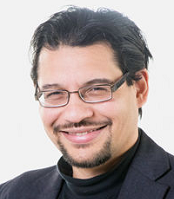
Edgar Ramos
Ericsson, Finland
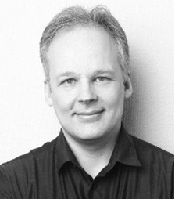
Peter Waher
Trust Anchor Group, Sweden
Talk details |
|---|
Presenter: Michael W Condry
Title: Using AI and Infromatics with a Medical Solution
Bio of the speaker: Michael is currently the Chair, of the Advisory Board for ClinicAI, Inc. Michael’s career spans both academic and industry positions, mostly in industry. His industry experience includes senior leadership roles in major corporations such as Intel, Sun, and AT&T Bell Laboratories. At Intel, Michael retired in 2015 after being the Chief Technical Officer in the Client Division. He held teaching and research positions at Princeton University and University of Illinois, Urbana-Champaign. His background includes projects in computer architecture, software, firmware, operating systems, networking, IoT, internet applications, standards, and computer security. Michael retired from Intel in June 2015. Michael, an IEEE Fellow, has many years engaging in the IEEE. He is the President of the IEEE Technology and Engineering Management Society (TEMS). Michael is a senior board member for the IEEE Industrial Electronics Society (IES).
Presenter: Edgar Ramos
Title: Life cycle management of Distributed AI
Abstract: Intelligent applications requires that the intelligence is configured and distributed to the remote subsystems that might not always be connected. They might be in constrained environment and subject to tight requirements ( performance, latency, processing, etc.) Embedding intelligence in the applications tie them to the own application life management cycle, and in consequence updates or changes in intelligence results in updates to the applications and vice versa. One solution to avoid the effect of the high coupling is to provide the intelligence as local or remote services to the applications. To serve this purpose, the intelligence is distributed in multiple aspects and domains (training, agent functional, service functional and execution) and a own life management process must be defined and specified to provide sustainable and secure processes for onboarding, updating, decommissioning and managing the intelligence services. From the point of view of business processes and ecosystems interactions, the life cycle management must be standardized and open in order to promote the interoperability of intelligence components.
Bio of the speaker: Edgar Ramos, works as a senior researcher and project leader in the area of IoT and Distributed Artificial Intelligence systems at Ericsson Research in Finland. He also has wide experience on wireless and mobile systems including the development of 5G concepts.
Presenter: Peter Waher
Title: Cross-Domain autonomous cooperation and monetization with IEEE P1451.99
Abstract: This talk presents how IEEE P1451.99 can help autonomous systems to interact (autonomously) with other autonomous systems, operated under different do-mains and by different controllers. Autonomous Systems need AI and Informatics and the cloud to successfully interoperate. This demands a standard for interoperability. IEEE P1451.99 standard proposal presently under development, defines an archi-tecture and federated, globally scalable communication infrastructure that includes support for security, ownership, consent-based privacy, decentralized (edge) pro-cessing, discovery, deterministic decision support, legal identities, smart contracts and monetization. It provides a means for owners of things to define rules, and for autonomous devices to find other devices, sign legally binding agreements and (co)operate with them. It also protects against malicious use. The infrastruc-ture counts usage, which is used to create billing instructions, providing a means for a Return of Investment for owners in Cross-Domain autonomous systems. The economic feedback model also provides an efficient means to optimize indus-trial processes autonomously using third party systems.
Bio of the speaker: Editor of IEEE P1451.99, vice chair IEEE P1451.1.4. Contributor to IEEE P2668 & P2805. Works on standardization for the IoT and the Smart City/Society. Co-founder of Trust Anchor Group (TAG), creating open, interoperable and secure networks and infrastructures for Smart Societies. Founder of Little Sister®, a standards based distributed social network, based on the principles of privacy & information ownership, for organizations, individuals and machines. Author.
Presenter: Panel Discussions Moderated by Michael W Condry
Title: Panel Discussions Moderated by Michael W Condry


